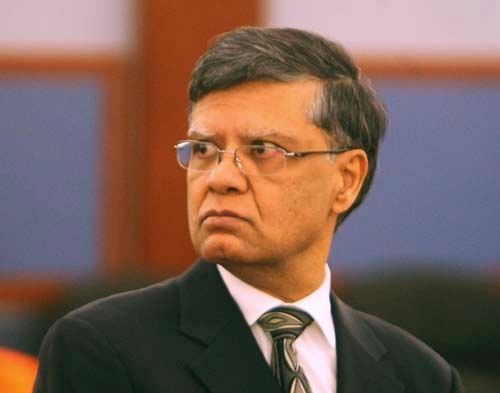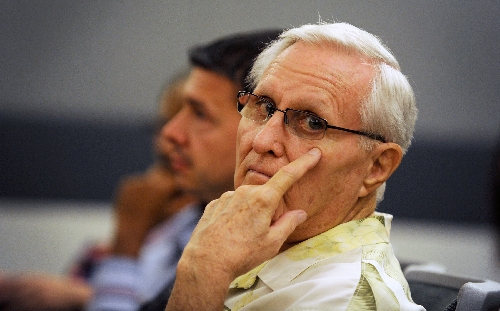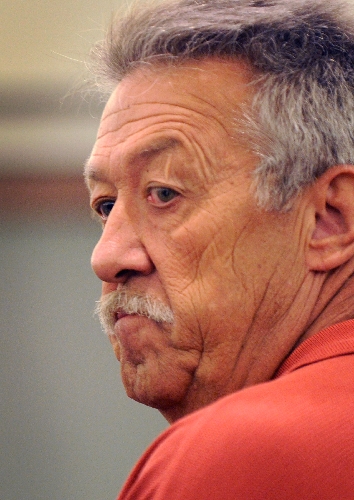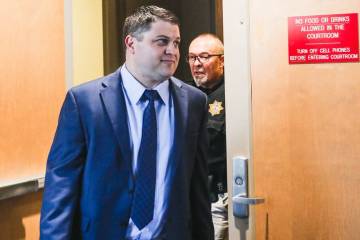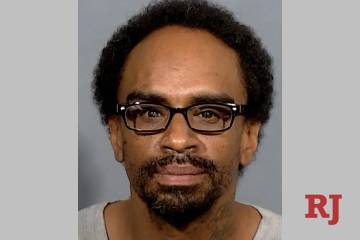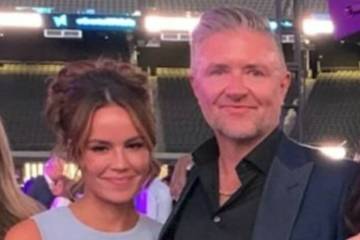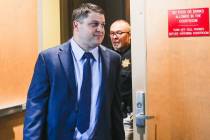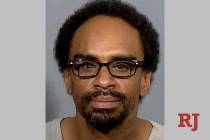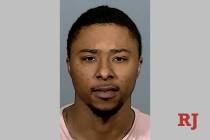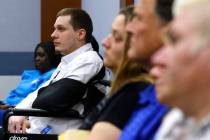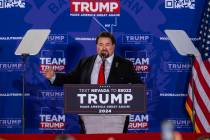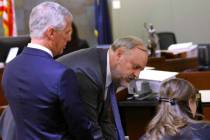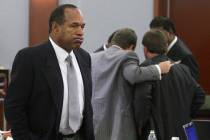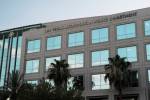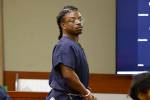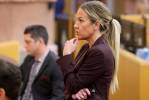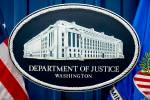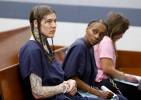Desai, nurses charged with murder
A grand jury on Friday indicted Dr. Dipak Desai and two nurse anesthetists on a second-degree murder charge in the death of Rodolfo Meana, a victim of Southern Nevada's hepatitis C outbreak.
The murder charge from the Clark County grand jury deepened the stunning fall from grace of the 62-year-old Desai, who had built up a lucrative medical practice and considerable community standing before health officials linked the outbreak to dangerous practices at his clinics.
District Judge Linda Bell set an Aug. 22 arraignment for Desai, 62, and the two nurse anesthetists, Keith Mathahs, 76, and Ronald Lakeman, 65, who worked for Desai.
Second-degree murder, which does not involve premeditation, carries a 10-year-to-life prison sentence.
All three defendants, who are free on bail, were accused in the indictment of "introducing the hepatitis C virus" into Meana's body while he underwent a colonoscopy in 2007 through "contaminated medical instruments, supplies and/or drugs."
Meana, 77, died in April from complications from hepatitis C in his native Philippines. His infection was among seven the Southern Nevada Health District genetically linked to Desai's main clinic, the Endoscopy Center of Southern Nevada on Shadow Lane. Health officials definitively linked another two cases to Desai's facilities and described 106 more cases as "possibly linked."
Meana and five other patients contracted hepatitis C through unsafe injection practices Sept. 21, 2007, health officials concluded. Another patient was infected July 25, 2007.
The murder indictment follows a 28-count indictment from June 2010 against the three defendants on an array of other charges stemming from the outbreak.
Desai, Mathahs and Lakeman face an Oct. 22 trial before District Judge Valerie Adair on those charges, which include racketeering, patient neglect, insurance fraud and obtaining money under false pretenses.
"We're looking forward to getting these matters before juries," District Attorney Steve Wolfson said after the murder indictment was returned.
The two prosecutors in the case, chief deputy district attorneys Mike Staudaher and Pam Weckerly, are likely to ask for an increase in bail for all three defendants because of the murder charge. Desai posted $1 million after the original indictment to maintain his freedom, and the two nurse anesthetists each put up a $500,000 bond.
The new case, which was assigned to District Judge Stefany Miley, comes after Mathahs and Lakeman on Thursday rejected a plea deal offered by prosecutors that would have allowed the nurse anesthetists to avoid being charged in Meana's death. Prosecutors had informed the defendants last week that they intended to seek the murder charge.
Special arrangements had to be made to recall the disbanded grand jury that heard the original case in 2010 to accept the murder evidence on Friday.
Bell, who oversees all grand jury matters, made an appearance about 8:30 a.m. at the grand jury room in the basement of the Regional Justice Center. The first of two witnesses appeared shortly after 9 a.m., and prosecutors concluded presenting evidence about 10:45 a.m.
Gerald Gillock, one of Meana's lawyers, said afterward that the new indictment brings consolation to Meana's family.
"What happened to Mr. Meana was horrific and caused him to have terrible suffering during the last months of his life from advanced liver failure," Gillock said. "The family will take a certain amount of solace in seeing Dr. Desai brought to justice."
Desai's attorney, Richard Wright, was out of town and unavailable for comment Friday. One of the physician's other lawyers, Margaret Stanish, did not return phone calls.
Rick Santacroce, who is defending Lakeman, declined comment until he has a chance to review the four-page indictment.
Mathahs' lawyer, Michael Cristalli, said he was "disappointed" that Mathahs was charged with murder.
"My client is no different than any other employees of those clinics who were identified as witnesses in this case and not charged," he said. "We'll have an opportunity to review the grand jury transcripts and seek the appropriate remedies in court."
Desai, a gastroenterologist who has since given up his medical license, performed Meana's colonoscopy and some of the medical procedures linked to infections at the Endoscopy Center of Southern Nevada. Both Mathahs and Lakeman administered the sedative propofol to the infected patients under the alleged questionable injection practices.
Only Mathahs injected Meana with the sedative, but prosecutors also were able to charge Lakeman in his death under the theory of the murder charge, which alleges all three defendants were part of the conspiracy that endangered the lives of Desai's patients.
The theory was first laid out in the original criminal indictment.
Desai pressured clinic employees into using additional doses of propofol from single-use vials on more than one patient during the medical procedures, contrary to accepted safety standards, prosecutors alleged.
An environment was alleged to have been created that limited the use of medical supplies necessary to conduct safe endoscopic procedures and rushed those procedures on a daily basis at the expense of patient safety - all for the purpose of "enhancing" financial profits.
In an effort to squeeze every dime out of his practice, grand jury testimony showed, Desai yelled at nurses for using too much tape to secure IV lines to patients' arms, preferred sterile sheets to cover patients instead of blankets to save on laundry costs and reduced the number of medical gowns staffers used each day.
Staffers testified that Desai churned patients through the clinics at an alarming rate, making patients uneasy and pushing employees to the limit. Desai verbally reprimanded employees for not moving patients fast enough and even pressured doctors into picking up the pace of their procedures.
The racketeering count in the first indictment also accused Desai of spearheading a criminal enterprise that falsified anesthesia records that were submitted to insurance companies.
Two of Desai's partners in the clinics, Dr. Clifford Carrol and Dr. Eladio Carrera, avoided being charged because they helped prosecutors build the case against Desai. Both doctors were given immunity.
Carrol admitted under oath before the first grand jury that he allowed Desai to intimidate him.
"He's very overpowering, and he's very strong," Carrol testified. "And I felt weak. I admit it."
Desai's office manager, Tonya Rushing, also cooperated and was not charged, though she is facing separate federal charges with Desai stemming from the hepatitis outbreak.
Rushing testified in 2010 that Desai kept control over the medical practice by having tantrums and discouraging employees from socializing with each other.
The employees couldn't "connect the dots if everybody doesn't know what everybody is doing," Rushing quoted Desai as once saying.
The criminal investigation into Desai's medical practice, which began in 2008, was one of the largest undertaken by Las Vegas police. Officials notified 40,000 former clinic patients at the Endoscopy Center of Southern Nevada about possible exposure to blood-borne diseases. More notifications followed for patients of a sister clinic, Desert Shadow Endoscopy Center.
Health officials blamed the outbreak on nurse anesthetists reusing propofol vials between patients after they had become contaminated by syringes that were reused on patients with hepatitis C.
In the months following the outbreak, Desai's lawyers said he was in ill health because of a series of strokes.
But following six months of observation and evaluation at the state's mental health hospital in Northern Nevada, Desai was found competent to stand trial earlier this year.
State medical experts concluded he was exaggerating the effects of his strokes.
Contact Jeff German at jgerman@reviewjournal.com or 702-380-8135.



